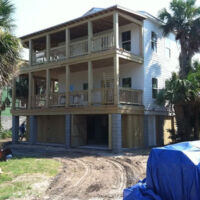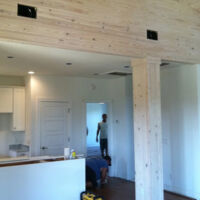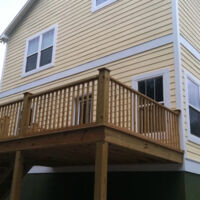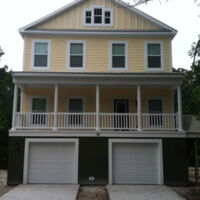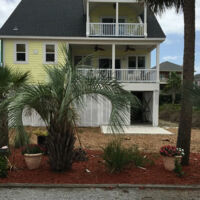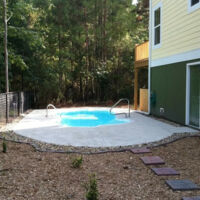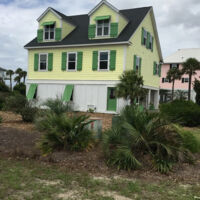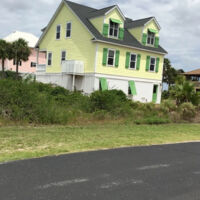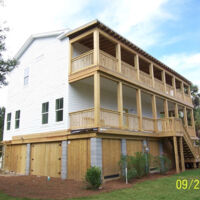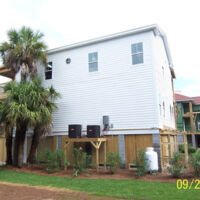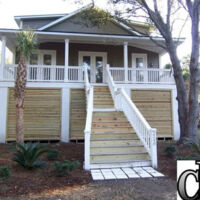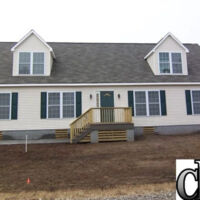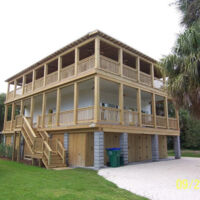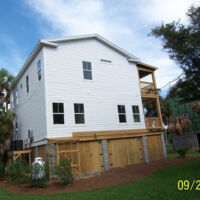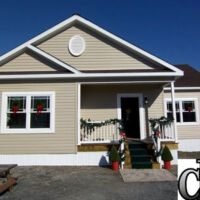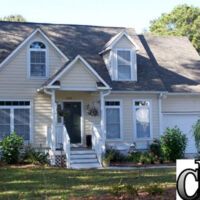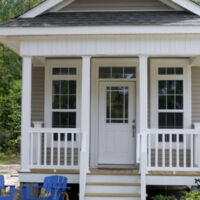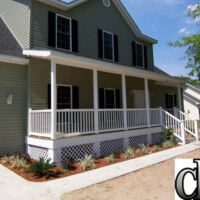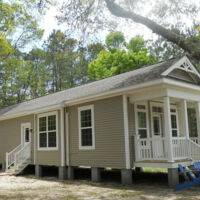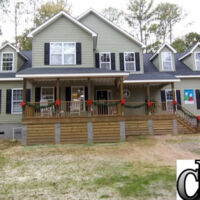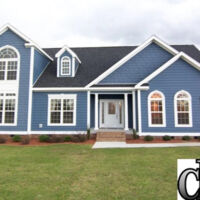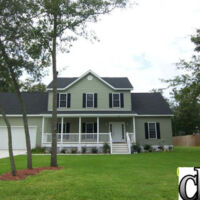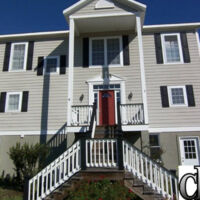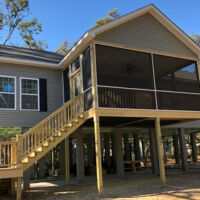CHS Coastal Homes and Sunrooms provides high-performance modular structures for single-family or multi-family residences. Modular homes are built in a controlled environment, therefore none of the materials used in the construction process have been exposed to the weather. Our modular homes meet or EXCEED state and local building codes including those in high wind zones. Our construction standards are approved up to and including the 180 MPH Wind Zone requirements. Looking for land in the Lowcountry area? Check out our home and land packages.
Some of our standard features include:
- 2×10 Floor system
- R-19 Fiberglass insulation in the floor and walls, R-30 in the roof
- A complete HVAC system including condenser, insulated duct system, and insulated boots and registers
- Comfort height low flow toilets with elongated bowls
- Pex water lines
- Air infiltration wrap on all exterior walls
- Durable vinyl siding or optional James Hardie cement board siding
- 7/16″ OSB sheathing applied to each exterior wall contributes to the strength and rigidity of our homes
- Vinyl single hung windows
- 30 year Architectural Shingles
- Roof pitches from 3/12 to 12/12 with 5/12 as our standard
- One piece fiberglass tub/shower or ceramic tile surrounds and custom showers available as an option
- 8′ standard ceiling height with optional 9′ and 10′ heights
- Covered Porches
Contact us today to learn more about building modular homes in Lowcountry, SC.
Modular homes are structures built in a controlled and environmentally protected facility. They are built using precise and efficient construction technology. Modular homes are built to the same local and state building codes as a site-built home, but because they are transported to the home site from the factory, modular homes tend to be much stronger than site-built homes.
The terms mobile home, manufactured home, trailer, modular home, prefabricated, and systems built are often considered synonymous. Yes, all are built off-site in a factory setting, but the similarities stop there. There is a huge difference in the building code and manufacturing processes of each of these types of homes.
The manufacturer builds the home and that’s it. That is what they are good at. Your builder provides everything else in the home building process. The manufacturer doesn’t replace the builder. Because of the distance from the factory, it makes sense to work with a licensed contractor that is familiar with the local building codes, local vendors, and local subcontractors that they may need. The local builder prepares your property, brings in the utilities, builds your foundation, and does all final interior, exterior, and site work AND they are there for you after you move in! While building a home is not rocket science, there are a lot of details that, if handled improperly, can cost you a lot of money.

